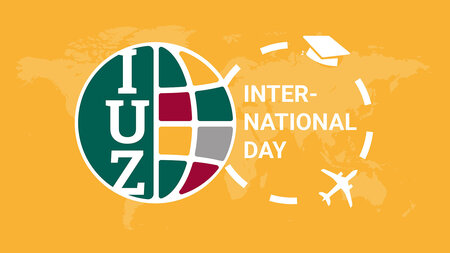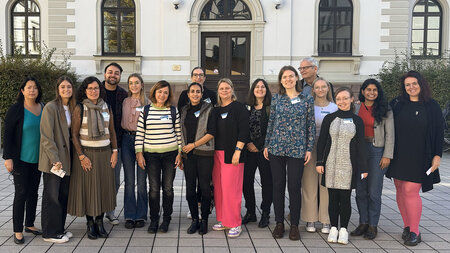Migration: Exception or Rule?
On 28 February, Prof. Dr. Birgit Glorius will give the opening lecture of the new event series at the Industriemuseum, titled “Melting Pot Chemnitz” (Schmelztiegel Chemnitz)
-

Prof. Dr. Birgit Glorius heads the Professorship of Human Geography, with a focus on European migration research. Photo: Chemnitz University / Jacob Müller
The history of humankind is characterised by exchange and mobility. Cities in particular are inconceivable without the ability of people to be geographically mobile. Migration can have many causes and also many consequences – for the migrants themselves, for those who are left behind, as well as for the host societies. Prof. Dr. Birgit Glorius, chair of the Professorship of Human Geography with a focus on European migration research at Chemnitz University of Technology, will shed some light on this current and tense topic on 28 February 2019 at the Chemnitz Industriemuseum, Zwickauer Straße 119. Her lecture, which begins at 18:00, also marks the start of the museum’s new series of events under the banner of “Melting Pot Chemnitz”. Glorius will discuss essential concepts and perceptions of international migration, using the example of Germany to show the different perspectives under which migration processes can be portrayed, and the causes and consequences that these have.
Background: Migration and Mobility
Our civilisation is marked by these concepts of exchange and mobility. According to the United Nations, the number of mobile people worldwide increased between 1960 and 2018 from about 75 million to nearly 244 million. These migrations can have differing causes: flight or forced migration is just one of the causes, albeit a significant one. In 2018 alone, there were more than 60 million refugees, whether they be in new countries, or displaced within their countries of origin.
Since the Second World War, Germany has received large influxes of immigration, starting with the admittance of roughly 12 million refugees and displaced persons, and then the immigration of so-called ‘Guest Workers’ in West Germany, who became increasingly sedentary since recruitment stopped in 1973. Since then, Germany has seen a second and third generation of Germans with migration backgrounds, as well as the admission of asylum-seekers. East Germany also recognised labor migration and the admission of refugees. In a reunified Germany, the focus in the last few years has been primarily on asylum seekers. In addition, at least as many so-called “EU Migrants” have come to Germany under the European Freedom of Movement Regulation.
For more information, please contact Prof. Dr. Birgit Glorius, Telephone +49 371 53133435, E-mail birgit.glorius@phil.tu-chemnitz.de.
(Author: Mario Steinebach / Translation: Jeffrey Karnitz)
Matthias Fejes
08.02.2019





